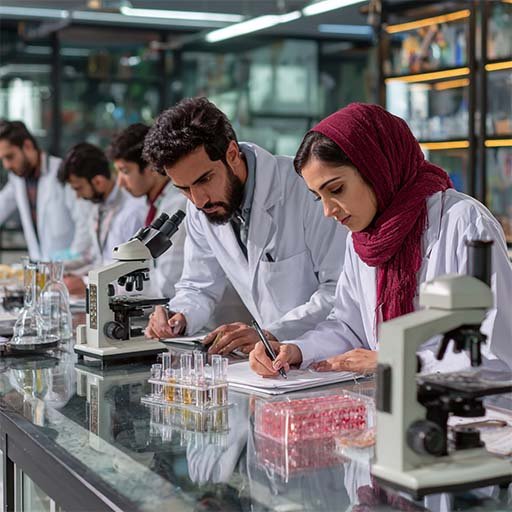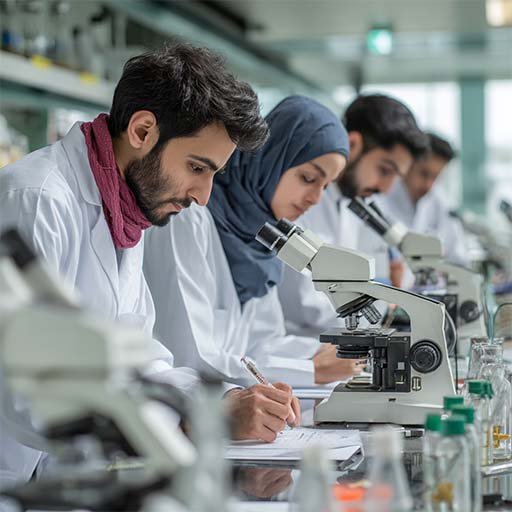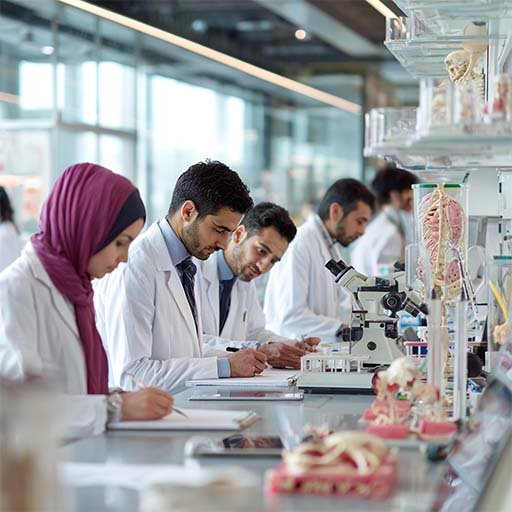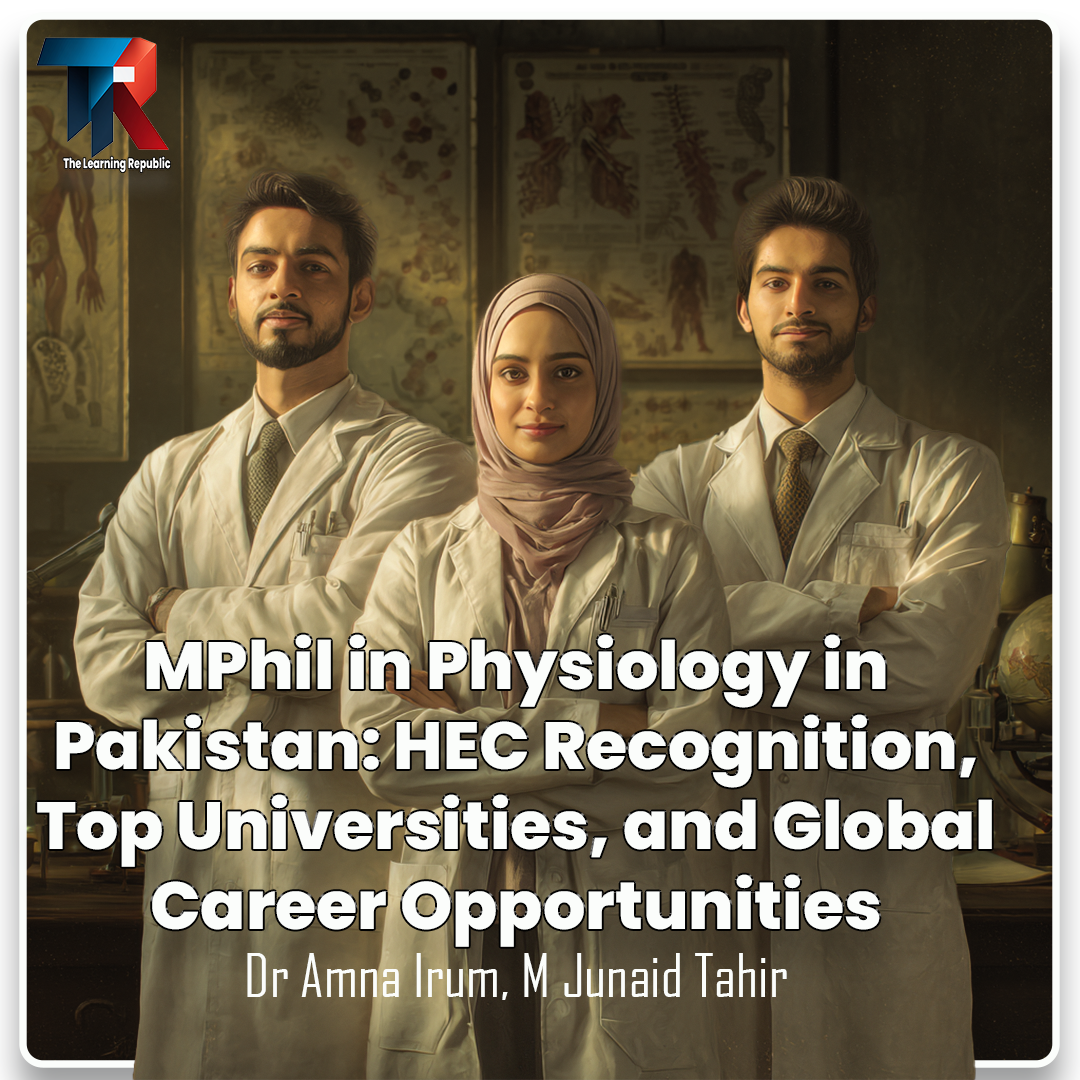Home > The Learning Republic
MPhil in Physiology in Pakistan: HEC Recognition, Top Universities, and Global Career Opportunities




Amid the Global Quest for new fields of study, Human Physiology is being regarded as a key niche related to Medical Education in Pakistan. The Higher Education Commission of Pakistan has actively worked to improve Higher Education in Pakistan, with the granting of the MPhil in Physiology being one of the most significant milestones. This degree is now well recognized within the Top Ranking Universities of Pakistan and abroad due to the quality of its training. Unlike other postgraduate programs which tend to be exclusively theoretical, the MPhil in Physiology features a well-designed integrated curriculum which includes lectures, laboratory work, and research. It prepares graduates to meet the global 21st century demands of international healthcare, innovation in biomedical enterprises, and clinical sciences.
What is Physiology?
Physiology is the science that underpins medical education and research in the human body. This is why a well-designed research and case-based education program must serve, at a minimum, as a foundation for professionals who wish to lead in patient care and bioscience research.
Why Physiology is Important?
The MPhil in Physiology prepares students with a deep understanding of physiology and expertise in conducting experiments, data analysis, and interpreting scientific results. Over a period of two years, students undergo advanced coursework, specialized research training, and a rigorous thesis project. Unlike in other programs, which may end with a series of examinations and assignments, the MPhil program is distinct in that all graduates are able to write original, field-contributing works. This program is unique, especially in the context of the increasing demand for high-quality medical research in the country.

The MPhil in Physiology as accredited by HEC is more than mere paperwork; in fact, it is a quality control measure for the institution’s image and prestige. HEC awarded degrees carry recognition and respect both nationally and internationally. This allows graduates to seek employment in academic and health care institutions even outside the country. HEC makes certain that the institutions offering this program are competitive in the quality of the faculty and the research resources available to the students. This level of scrutiny is fundamental. In the absence of such regard, the degrees will hold no value in the local or international marketplace. Such credibility provides a guarantee to prospective students that the money and time spent will result in a valuable degree that provides opportunities.
Why to Study Physiology ?
One of the frequently asked questions by students concerning the MPhil Physiology is Why should I pursue an MPhil Physiology when there are so many other postgraduate options in biomedical sciences? The answer is the convenience and the need of the problem. The program not only trains students in the basic concepts of physiology, but also other important areas such as biomedical sciences, molecular physiology, neurophysiology, and clinical applications. There is not a single occupation with which a student of this program could be associated. He or she could work at universities as educators with graduate research programs, in hospitals, or with pharmaceutical or biotechnology companies. For individuals wishing to pursue PhD programs in their own country or abroad, this degree provides a strong foundation in research and applied sciences, thereby enhancing their mobility options.
One’s chances of being accepted into the program are slim, especially the rigorous academic standards that must be met. Most universities require a Bachelor of Science degree along with a specialization in Physiology, Biomedicine, or a related field, with a minimum CGPA threshold. Additionally, the applicants are evaluated in their research competencies through exams or interviews to ascertain that they can sustain the program’s academic and research demands. Other institutions would also assume that a pre-research proposal be given first, which is a check on whether the student is interested and has the capacity to think creatively on the possible research topics. Such a rigorous selection criterion will ensure that only the most motivated and capable students get accepted into the program.
The balance between theory and practice is maintained in the MPhil in Physiology and is aligned with the curriculum milestones. Students learn advanced human physiology, cardiovascular physiology, and neurophysiology alongside cellular physiology, research methods, biostatistics, and clinical biochemistry. Different from most programs, this degree combines classroom training with actual laboratory work as well as case based learning where students solve clinical dilemmas in teams. Students in this particular degree program are trained to understand the physiological processes and, in addition, trained to conduct research to solve complex medical problems resonant in today’s clinical practice.
A distinct and notable attribute of the program is its research-based approach. Students are encouraged to assume the role of an independent investigator and carry out research projects that may be guided by faculty members. This type of research is often represented by laboratory work, clinical case studies, and collaborations with hospitals. Students learn essential skills of designing experiments, measuring and analyzing data, drawing conclusions that are meaningful, and making recommendations that may help to optimize healthcare services. Participation in seminars, workshops, and national or international conferences also help students to interact with experts and to share their work with other students.
A unique attribute of the academic syllabus is that it also incorporates the case-based method. Rather than teaching students through the textbook and its myriad theories, students are presented with actual medical cases that contain physiological data. They may, for instance, research the effects of lifestyle on the heart, how diabetes modifies normal physiological responses, or how the respiratory system reacts to environmental changes. This approach serves not only to enhance problem-solving skills but also to address real-life healthcare challenges.
Through special courses, the advanced biomedical sciences are integrated into the program. Students are able to explore areas such as molecular biology, pharmacology, and the physiology and pathophysiology of cells and diseases. These programs enable students to go beyond the traditional boundaries of physiology and train to become specialists in contemporary medical research. Such interdisciplinary programs make it possible for the graduates to be multi-skilled and practice in diverse areas of health care and science.
Emphasis is placed on practical work to balance the theoretical work. Students spend a substantial amount of time in the laboratories conducting experiments and working with biomedical equipment. They examine how the body responds to various conditions by studying animal models or performing human physiological testing. Such practical exposure ensures that students are not only knowledgeable in theory but also competent to work in actual job settings.
The other strength of this program consists in faculty expertise. The centers awarding MPhil in Physiology are usually those universities that have professors and researchers with Ph.D. degrees who both lecture and supervise students in the postgraduate thesis work. The faculty members assist the students in the mentorship for publication of research papers, presentation in various scholarly meetings, and planning for advanced studies in the form of doctoral research. This form of mentorship is invaluable in that it helps in the development of students as independent researchers as well as independent and critical thinkers.
There are no bounds to the career opportunities available to students pursuing MPhil in Physiology. The majority take to academia and teach students pursuing medicine and allied courses. Others take up employment in research laboratories, hospitals, and the pharmaceutical industry, all of whom require the knowledge and training in physiology and biomedical sciences. Graduates also take up positions in the health care management system, diagnostic laboratories as well as with public health institutions. There is demand for their skills in Europe, North America, and the Middle East, where the biomedical research and healthcare industries are rapidly expanding.
One of the most innovative and concerned areas of involvement of the postgraduates is under the heading of biomedical research. The attained skills during MPhil will enable them to design research plans that will aid in the creation of modern therapies, improved diagnostic methods, and in the production of new pharmaceuticals. The contribution that these works can make is enormous, not only to Pakistan, where medical research is valued, but to the entire world.
Of course, not every aspect of a program is ideal. Pressure in Time Management, Advanced Laboratory Resources, and Funding. There is a general lack of funding in this field that puts students at a disadvantage. In addition to course work, there is a research time-commitment that requires a high level of time management. In between schools and the HEC, there is a growing trend to tackle these issues with the provision of grants, scholarships, and improved research infrastructure. In any case, the difficulties do not make the strong benefits and opportunities of the program any less.
As for the MPhil Physiology degree Pakistan offers, its foreseeable future is quite optimistic. With growing investment in the healthcare industry and the prioritization of research on a global scale, the need for highly qualified physiologists is on the rise. With the help of government policies, international partnerships, and emerging technologies, the scope of the degree will most likely increase substantially. The graduates will certainly continue to be instrumental in evolving Pakistan’s healthcare policy and academic landscape while providing innovative solutions to the biomedical problems in the country.
The MPhil in Physiology relative to other postgraduate degrees the Pakistan offers, is more of a program with a distinct focus. It is also research intensive and market-oriented, aimed at equipping learners with employable skills in the academic, biomedical, and healthcare spheres. The program with HEC approval has a designed well-developed curriculum along with favorable job market outlook, is highly recommended for those interested in the subject of Physiology, biomedical sciences or healthcare. Students will be able to secure a sustainable future while at the same time aid medical and healthcare systems not only in Pakistan but also on a global scale.
Author: Dr. Amna Iram, Physiologist, Educator, and Researcher at NUR International University, combines 15 years of teaching, clinical practice, and innovation in physiology, integrating AI, research, and medical education for progressive healthcare learning
M. Junaid Tahir : Physiology Scholar at NUR International University